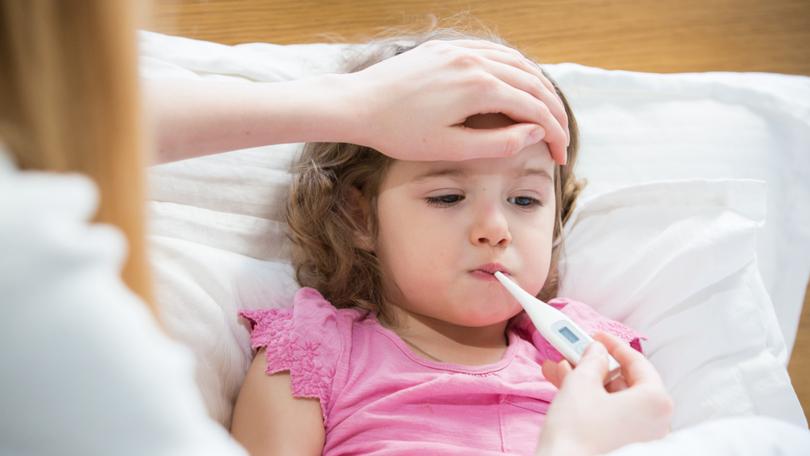‘Stay home’: Urgent warning as viral gastro cases skyrocket in NSW
Skyrocketing cases of viral gastroenteritis have prompted an urgent warning from health authorities advising people to be on the lookout for symptoms and stay at home if infected.

Skyrocketing cases of viral gastroenteritis have prompted an urgent warning from health authorities advising people to be on the lookout for symptoms and stay home if infected.
The number of people falling victim to gastro bugs rotavirus and norovirus — both of which cause vomiting, diarrhoea, fever and pain — is at its highest levels in recent years, NSW Health statistics show.
Last week more than 2700 people presented to NSW emergency departments with gastro symptoms.
Sign up to The Nightly's newsletters.
Get the first look at the digital newspaper, curated daily stories and breaking headlines delivered to your inbox.
By continuing you agree to our Terms and Privacy Policy.Cases of rotarvirus jumped nearly 250 per cent between August and September, leaping from 360 cases to 890. So far in October, there have been 148 cases.
The number of cases of rotavirus is particularly high among children under 5.
Keira Glasgow, Director of NSW Health’s One Health branch, said it was important to reduce the spread of gastro before children returned from school holidays next week.
“The message to the community is clear – simple measures can help stop the spread of gastro. Maintaining good hand hygiene and keeping children at home when they are unwell will give us a good chance to slow the spread,” Ms Glasgow said.
She said parents should keep children home from childcare and school until at least 48 hours after their last symptom.
The highly infectious viruses are spread through the vomit and faeces of infected people via unwashed hands, contaminated surfaces, cleaning up body fluids, sharing contaminated objects, consuming contaminated food or drink, and occasionally inhaling airborne particles when people vomit.
Advice for parents and caregivers:
- Keep children experiencing gastroenteritis home from childcare services, vacation care and school. Children should not return until 48 hours have passed since their last symptom.
- Wear gloves and a mask when cleaning up bodily fluids, including vomit.
- Wash your hands thoroughly and regularly with soap and running water, particularly after changing nappies, assisting someone with diarrhoea and/or vomiting and before preparing food. Alcohol hand sanitiser is generally less effective than soap and water but can be used if these are not available.
- Immediately and thoroughly clean contaminated surfaces with hot, soapy water and then disinfect the area using a household disinfectant. If possible, disinfect with a freshly made sodium hypochlorite (bleach) solution, prepared according to manufacturer’s instructions.
- Immediately remove and wash clothing or linen that may be contaminated with stool or vomit (use hot water and detergent).
- If you are visiting a loved one in aged care, do not use private (in-room) toilets when visiting. If you have been unwell with an upset stomach or looking after children affected by these symptoms, wait at least 48 hours after your symptoms resolve before visiting.

